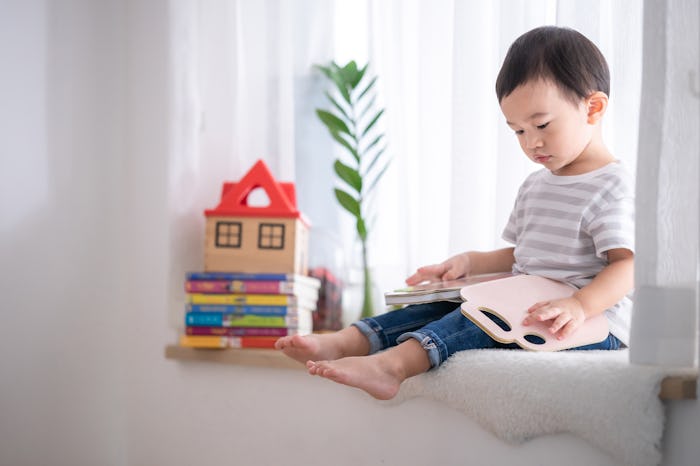Back to School

52 Sight Words for Kindergarten
It’s never too early to foster a love of learning.
Whether your child has been in preschool, day care, or home with a caregiver, sending them off to kindergarten is a very big deal. Kindergarten is the educational on-ramp for your child’s journey into learning, and a big part of that kickoff is likely to be learning these 52 sight words. If your child is already curious about learning to read, you can help them along by teaching them these sight words for kindergarten that will put them at the head of the class.
What are sight words?
The concept of sight words is rooted in an approach to teaching children how to read that embraces the idea of memorizing the appearance of certain basic words. “Reading is a developmental process. In the early years, this involves bringing together various aspects of phonology, or sounds, orthography, or letter patterns, and also morphology, or units and patterns that have meaning,” Dr. Rebecca Mannis, a learning specialist, tells Romper. “Kids in those early grades are learning how to decode words that have ‘regular patterns’ or predictable letter-sound associations such as c-a-t- and b-a-t.” As children learn the patterns and rules associated with certain words, they’re able to decode them more quickly, and store these words in their long-term memory. While some sight words are sounded out, others are recognized based on what they look like.
Once kids enter kindergarten, sight words become a very big deal, as they’re considered to be steps on the path toward reading. “Sight word lists are created to provide parents and teachers a guideline for helping children learn the words that they will come across most frequently in their reading,” explains Holly DiBella-McCarthy, an educator certified in special education. “Grade level sight word lists include the most frequently found words in reading at that same level. Children should be exposed to sight word instruction as they begin to take an interest in letter sounds and express a desire to learn to read.”
What sight words should kindergarteners know?
When it comes to sight words in elementary education, they basically break down into two categories: “Dolch” and “Fry.” “The Dolch sight word list is based on high-frequency words for kindergarten through third grade and contains a total of 220 words,” Elena Smith, a speech and language pathologist, explains of the methodology created by Dr. Edward William Dolch in the 1930s. The Fry sight word list, meanwhile, was created by Dr. Edward Fry in the 1950s and is based on words that appear frequently in reading material for older children — specifically third through ninth graders — and is divided into 10 levels. Each level contains 100 words, for a total of 1,000 words.
Although your child will learn most (if not all) of these sight words in kindergarten, you can totally teach some of them at home before school even begins, if you’re both up for it. The 52 sight words for kindergarten are:
- All
- Am
- Are
- At
- Ate
- Be
- Black
- Brown
- But
- Came
- Did
- Do
- Eat
- Four
- Get
- Good
- Have
- He
- Into
- Like
- Must
- New
- No
- Now
- On
- Our
- Out
- Please
- Pretty
- Ran
- Ride
- Saw
- Say
- She
- So
- Soon
- That
- There
- They
- This
- Too
- Under
- Want
- Was
- Well
- Went
- What
- White
- Who
- Will
- With
- Yes
You can help your little learner practice their sight words with flash cards, early education computer programs, or even have them write out the sight words for you. Before you know it, your child will have memorized enough sight words to be able to start reading all on their own.
Sources interviewed:
Holly DiBella-McCarthy, an educator certified in special education
Dr. Rebecca Mannis, Ph.D., learning specialist and developmental psychologist
Elena Smith, CCC-SLP, founder and clinician at Ivy Speech and Language
This article was originally published on